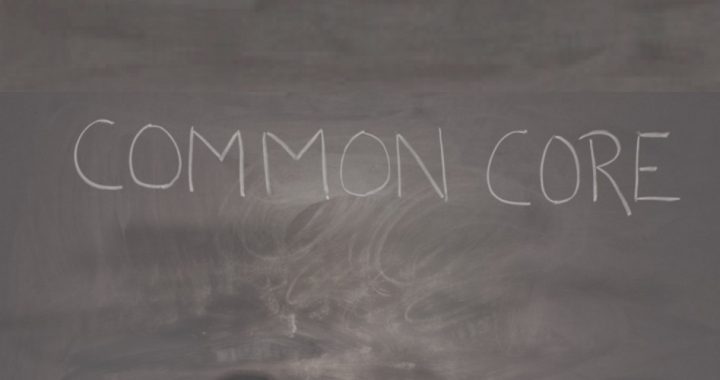
New Hampshire state legislators are moving toward making Common Core a little less common in the Granite State.
On May 3, by a vote of 16-2, the state House Education Committee passed SB 44, a measure that would prohibit the state’s education bureaucracy from forcing schools in the state to adopt the so-called Common Core education standards.
Common Core State Standards Initiative is the official name of the scholastic standards copyrighted by the Washington, D.C.-based National Governors Association (NGA) and the Council of Chief State School Officers (CCSSO). Common Core has come under significant fire from parents, teachers, and school administrators across the country, who declare that the standards are a bid by the federal government to take over the education system. Additionally, privacy advocates have voiced concerns over the distribution to contractors of personally identifiable information about students and their families.
Admittedly, this bill wouldn’t completely rid the state of the specter of the federal education fiasco that is Common Core, but it would make the adoption of the plan harder to carry out.
There is perhaps no usurpation of power by Washington that’s more egregious and more dangerous than the establishment of the Common Core Standards. Young children, unaware they are being fed a steady diet of falsehoods by the government educrats, grow up to be adults who accept the government’s gradual grab of all power, including the power to define civil liberties and give them and take them away as the despots see fit.
In an article examining the “real agenda” of the coalition forcing the adoption of the Common Core Standards, The New American’s Alex Newman observed:
Totalitarian leaders from Hitler to Stalin and everywhere in between have always sought to centralize and control education. The reason is simple: Whoever molds the minds of the youth can eventually dominate the population, even if it takes a generation or two. That is why tyrants in recent centuries have demanded compulsory, government-led education. Hitler made clear that he wanted to use “education” as a tool to mold German children in accordance with the National Socialist regime’s despotic and murderous ideology. So did Stalin, and numerous other infamous tyrants and mass-murderers. As Karl Marx noted in his Communist Manifesto, government-controlled schooling is essential to achieving the goals of socialism.
In his masterpiece On Liberty, renowned British philosopher and parliamentarian John Stuart Mill succinctly explained the inherent problems with government schools. “A general State education is a mere contrivance for moulding people to be exactly like one another; and as the mould in which it casts them is that which pleases the predominant power in the government … it establishes a despotism over the mind, leading by natural tendency to one over the body,” he wrote.
All states should follow New Hampshire’s lead and do everything possible to opt out of Common Core and the rest of federal education regulations. They have this power.
The simple, undeniable fact is that the Constitution does not grant to the federal government any authority over education. Therefore, according to the 10th Amendment, that power is retained by the states and the people.
This isn’t some marginal view of second-tier founding era writers. In fact, the Founders were universally agreed that state governments have the power to take this tack with regard to unconstitutional acts of the federal government.
In The Federalist, No. 78, Alexander Hamilton explained the philosophy behind the principle:
There is no position which depends on clearer principles, than that every act of a delegated authority, contrary to the tenor of the commission under which it is exercised, is void. No legislative act, therefore, contrary to the Constitution, can be valid. To deny this, would be to affirm, that the deputy is greater than his principal; that the servant is above his master; that the representatives of the people are superior to the people themselves; that men acting by virtue of powers, may do not only what their powers do not authorize, but what they forbid.
James Madison, also writing in the Federalist Papers, recommended that state legislators, in order to prevent federal abridgment of fundamental liberties, should refuse “to co-operate with the officers of the Union.”
Speaking during the War of 1812, Daniel Webster said:
The operation of measures thus unconstitutional and illegal ought to be prevented by a resort to other measures which are both constitutional and legal. It will be the solemn duty of the State governments to protect their own authority over their own militia, and to interpose between their citizens and arbitrary power. These are among the objects for which the State governments exist.
In the Kentucky Resolution of 1798, Thomas Jefferson wrote:
That the several States composing the United States of America, are not united on the principle of unlimited submission to their general government; but that, by a compact under the style and title of a Constitution for the United States, and of amendments thereto, they constituted a general government for special purposes — delegated to that government certain definite powers, reserving, each State to itself, the residuary mass of right to their own self-government; and that whensoever the general government assumes undelegated powers, its acts are unauthoritative, void, and of no force.
Nullification is a constitutionally sound method of checking federal usurpation and is quicker and less complicated than an attempt to have the law repealed by Congress or overturned by a future federal bench more respectful of the Constitution.
That said, there is no reason that concerned citizens should not use every weapon in the constitutional arsenal, including working to convince Congress to abolish every unconstitutional department of the federal government, including the Department of Education.
While the New Hampshire House committee’s contra-Common Core vote is good news, for proponents of individual liberty, the ultimate goal would be for parents to keep the fruits of their labor and then be free to spend that money in any way they see fit, including on the education of their children. That goal is far from being reached, however. For now, government keeps creating programs that take the property of parents and shift it to others.
Taking money from a person against that person’s will — even if that money is used for an arguably good cause — is theft. And, if it is illegal for an individual to do something, it is equally illegal for government to do that thing, as the government is nothing more than collective organization of the rights of individual members of the society.
This process of government-sponsored thievery is known as “legal plunder.”
Speaking specifically of the use of plunder in the propping up of public education, French political economist Frederic Bastiat explained in his 1850 pamphlet, The Law:
You say: “There are persons who lack education,” and you turn to the law. But the law is not, in itself, a torch of learning which shines its light abroad. The law extends over a society where some persons have knowledge and others do not; where some citizens need to learn, and others can teach. In this matter of education, the law has only two alternatives: It can permit this transaction of teaching-and-learning to operate freely and without the use of force, or it can force human wills in this matter by taking from some of them enough to pay the teachers who are appointed by government to instruct others, without charge. But in this second case, the law commits legal plunder by violating liberty and property.
The next step in New Hampshire toward restoring educational liberty will be taken when the bill moves on to the full House of Representatives for consideration.



